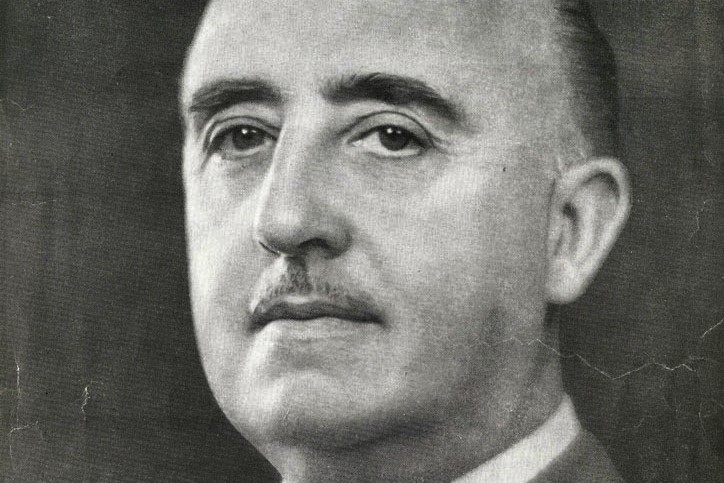
Reaction to modern liberal society has apparently been treated as akin to ‘the Inquisition and Islamic State, Francisco Franco and Ayatollah Khomeini, Vichyism and Leninism’. If you make that claim and end by stating ‘[W]e do well to remind our fellow citizens [that] Man [sic] is made for more than this world, and his [sic] final destiny is in the hands of the Almighty’ you might be thought to have given up your own cause. But let us be charitable and (overlooking the implicit sexism) acknowledge that we must accept our ignorance of the universe’s final ends and live only according to the little that we can know.
Sohrab Ahmari’s essay on ‘The New American Right’ in First Things attempts to lay a philosophical base for what he calls ‘Post-Fusionist Conservatism’, but which elsewhere has been referred to as ‘Post-Liberalism’ and in the UK flies under the banners of ‘Blue Labour’ and ‘Red Toryism’, associated with Maurice Glasman and Phillip Blond respectively. The basic premise is that ‘liberalism’, in both its social guise and economic guise has precipitated a society that is ‘fragmented, atomized and morally disoriented’, and in consequence ‘we need a politics of limits, not of individual autonomy and deregulation’.
Ahmari’s call for ‘a public square reoriented to the common good and ultimately the Highest Good’, is commendable, but leaves open the question of what and whose ‘Highest Good’ is to be sought. Without revealed truth (and a single revealed truth at that) this can only be speculative. The unique selling point of liberalism is that it recognises this and so seeks to maximise the options for everyone, individually or collectively, to seek and to find their own Highest Good. Ahmari characterises ‘progressive liberalism’ as wishing to ‘raze all structures that stand in the way of an empire of autonomy-maximising norms’, while ‘conservative liberalism’ recognises ‘the need for some limits’. He rejects both, arguing that ‘freedom requires a moral and religious horizon…in the state and the political community’. But this is to bring the subjective and the metaphysical into the objective and empirical; ‘[m]illennia of religious tradition and philosophical contemplation’ are no better than ‘old prejudices’ when they lack any empirical foundation or basis in common experience of the world.
While it is quite true that ‘to be fully human is to accept natural and traditional limits’, it is also true that to be fully human is to test them. As a consequence of that and of technological advancement, population growth and changes in our environment, some form of administrative state (‘vast’ being entirely in the eye of the beholder) is essential to mediate between all of us and our circumstances. To lay this at the door of ‘individualistic liberalism’ alone is nonsense. And if limits are ‘the anvils on which we hammer out the unique shapes of our lives’ then those imposed by nature, environment and our current technology seem restricting enough without adding to them arbitrary moral and social limits.
Ahmari correctly observes that life has become more uncertain and ‘hard to endure’ for many Americans (and Europeans) and for their children, but is it true that ‘opening up greater scope for personal choice’ must come ‘at the cost of a predictable life trajectory’? This need not be the case if predictable life trajectories are still on offer because they are supported by safety nets of social solidarity. Predictable life trajectories created by stifling choice are surely deadening to the human spirit, however. The crux of the issue is revealed when Ahmari states:
The left emphasizes moral autonomy, while the right emphasizes market freedoms. For both, the highest end of politics is the pursuit of autonomy and care for the procedures that maximise autonomy.
This is quite wrong as a comparison between ‘progressive’ and ‘conservative’ liberalism. ‘Market freedoms’ as posited by the modern right in fact have very little to do with autonomy, let alone ‘the procedures that maximise autonomy’. That the two are associated is an argument from analogy, not one of logic. Certainly, the right to exchange your goods and services with others is an important freedom, but the right to do so with no regard for relative positions of market power and information or for social and environmental consequences is one that reduces autonomy rather than maximising it. Most ‘market freedoms’ demanded by the political right today do not in any way follow from a general desire for individual autonomy, but purely from the self-interest of a wealthy and powerful elite.
Moreover, there is a philosophical distinction between the liberalism of the left and the liberalism of the right, one that goes unrecognised in Ahmari’s lazy dismissal of ‘misguided socialist promises’. Libertarianism or ‘classical liberalism’ openly defines maximum autonomy as the ‘Highest Good’ without recognising the contradictions of its position for an interdependent species, or indeed the emptiness Ahmari’s essay describes. Socialism, again quite openly, sees autonomy as a means to ends. The ends are not prescribed; they are personal, and may be achieved individually, collectively or both. These Highest Goods may be religious, social, artistic, emotional or intellectual. As such they encompass ‘faith and family’ priorities for those who wish to seek those without excluding, as Ahmari’s conception appears to, those whom these certainties do not fulfil.
Whenever a specific ‘Highest Good’ is promoted by public policy we are on dangerous territory. However meritorious that good appears to be, the authoritarian structures required to channel it may well become the ends rather than the means, with the focus on preserving a hierarchy rather than promoting the purpose it is meant to serve. And authoritarian structures put in place to serve one ‘Highest Good’ can be hijacked for another – unintended by those establishing the structures in the first place. The only protection from these eventualities is an open structure that allows as much freedom as possible for competing ‘Highest Goods’ – a liberal polity, in other words. In a sense the lack of a direct reference to ‘Higher Goods’ in liberal thought is deliberate and essential – because the essence of liberalism is that these are unprescribable, not that they are non-existent or unimportant. If indeed there were truly one such good, the ‘Almighty’ say, then those to whom that has been revealed ought to have faith that left to our own devices we will all come round to ‘his’ truth in the end.
